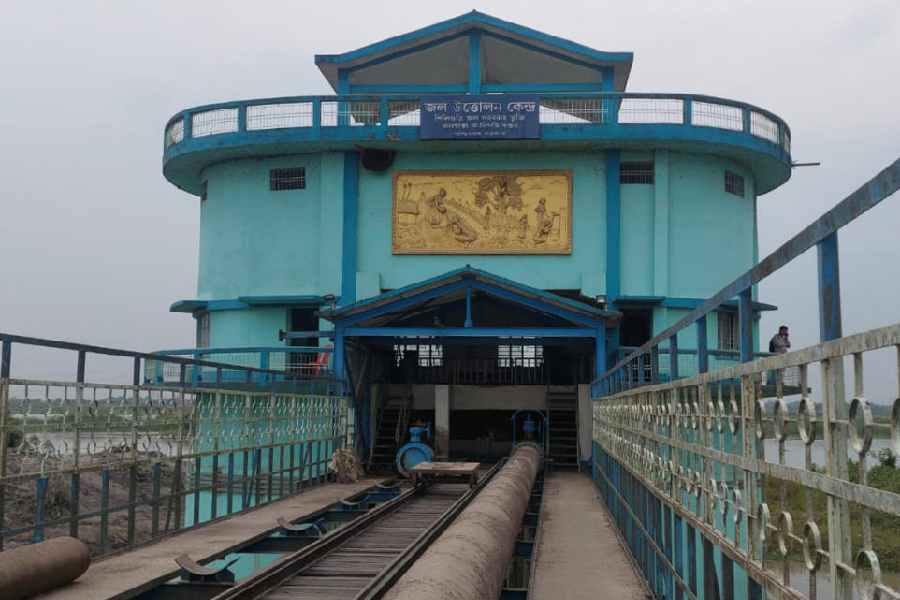The Trinamool-run board in Siliguri Municipal Corporation managed to restore drinking water supply across the city from Sunday afternoon with the help of the state irrigation and PHE departments.
Since May 28, Siliguri has been grappling with acute drinking water crisis as the civic body announced that the water it had supplied across the civic area was unfit for drinking. The civic body had then engaged tankers and distributed water pouches for four days, but the supply proved inadequate and many were forced to buy water.
Mayor Gautam Deb said on Sunday that the officials of the PHE department confirmed that the water that was now drawn from the Teesta canal, treated at the treatment plant in Fulbari and supplied to the municipal wards of the city, was fit for human consumption.
“The chief engineer of PHE’s northern circle sent a letter to the commissioner of SMC on Saturday, mentioning that they held multiple tests and field sampling of the treated water of Teesta canal in various locations. They found the water fit for drinking. From today afternoon (Sunday), we are supplying this water,” said Deb.
On May 28, Deb had said that the water supplied contained high BOD (biochemical oxygen demand). That water was drawn from the Mahananda river as there was no water flow in the Teesta canal because of ongoing repairs carried out by the state irrigation department.
While talking to a newsperson, the mayor said that they were simultaneously working on the mega drinking water project in Siliguri. The estimated cost of the project, under the Centre's Amrut 2.0 scheme, is ₹511 crore.
Under the project, an additional ₹76 crore will be spent on laying the pipes.
“The first phase of the project is likely to be completed within two years. The tender process has been carried out and the work order for the first phase, during which ₹204 crore will be spent, has been issued,” said the mayor.
He said that after last October’s flash flood in the Teesta, which caused massive damage, plans for the new drinking water project had been revised in view of the needs. The location of the water purification pond, its alignments of pipelines and other technicalities were being tweaked, he said.
“We will hold a meeting in the SMC on June 6 in the presence of officials of the irrigation and PHE departments on the revised plan. Our target is to finish the project within its stipulated period,” Deb said.
The civic body, sources said, is now working on the tender process for the final phase of the drinking water project. The tender is likely to be floated after June 4.
The process for land procurement for a third drinking water project, which is expected to come up near the Eastern Bypass and the Sevoke Road area, is also in progress.
Rivulets
The civic board in SMC is working to rejuvenate the Fuleswari and Jorapani rivulets which flow through Siliguri. The project has been taken up in association with the state irrigation department that has provided a sum of ₹10 crore.
The civic body, Deb said, is also working with the Kolkata Metropolitan Development Authority for the installation of sewerage plants for the rejuvenation of the Mahananda river which also flows through Siliguri.
The plants will come up in Fulbari and Shaktigarh, the mayor said.











